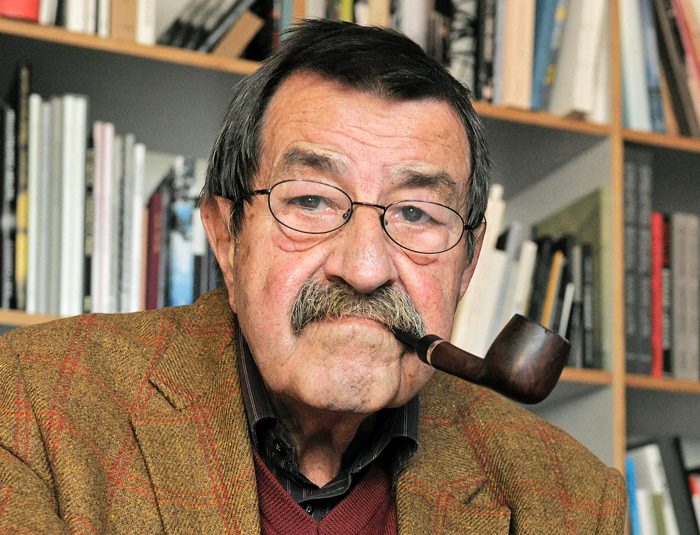Guenter Grass, German Nobel literature prize winner and author of The Tin Drum, has died aged 87.
Born in what was then Danzig, Grass served in the German military in World War Two and published his breakthrough anti-Nazi novel, The Tin Drum, in 1959.
Later in life he became a vocal opponent of German reunification in 1990, and argued afterwards that it had been carried out too hastily.
Grass's work was "a formidable reflection of our country and a permanent part of its literary and cultural heritage," German President Joachim Gauck said in a statement (in German).
Foreign Minister Frank-Walter Steinmeier was "deeply dismayed" to hear of the author's death, the German foreign ministry tweeted.
Writer Salman Rushdie described Grass as "a true giant, inspiration, and friend".
Guenter Grass
- 1927: Born in Danzig (now Polish city of Gdansk)
- 1944: Joins Waffen-SS
- 1945-6: Prisoner of war
- 1948-56: Studies sculpture in Duesseldorf and Berlin
- 1959: Achieves worldwide fame with the publication of The Tin Drum
- 1999: Awarded Nobel Prize for Literature
- 2006: Reveals his SS past in memoir
- 2015: Dies in Luebeck
Germans were shocked when he revealed in his 2006 memoir, Skinning the Onion, that as a teenager he had volunteered to join the army and had served in the Waffen-SS - the combat arm of Hitler's dreaded SS paramilitary force, which was responsible for atrocities throughout Nazi-occupied Europe.
Previous accounts of his life had suggested he had been an anti-aircraft gunner and had been conscripted into the military.
After the war he spent months in an American prisoner of war camp.
Aggression and guilt
Guenter Grass was very committed politically, impulsive, emotional, and could be quite aggressive, said Annemarie Stoltenberg from German radio station NDR Kultur."For the first generation of post-war intellectuals the priority was to build a new justice system and democracy," she explained.
"Grass then came in the second wave, and said we must also tackle the issue of guilt and what had happened in the war."
The Tin Drum - part fairy tale, part survival story in a brutal world - had a biblical energy, according to Stoltenberg.
For Grass - who had attacked so many people before for not being open about their wartime past - the criticism when he admitted joining the Waffen-SS in his youth was a big blow, she said.
"But he had documents showing he had spoken about it earlier, and I don't think the attack on him was justified," she added.
Praising The Tin Drum, the Nobel committee said that it was "as if German literature had been granted a new beginning after decades of linguistic and moral destruction".
'Strange and beautiful'
The magical realist novel's narrator decides to stop growing at the age of three, and watches the adult world around him as events overtake his family and Danzig. He communicates through his tin drum and is able to "drum up the past", reporting on events he has not witnessed.Grass was politically engaged - campaigning for the Social Democratic Party - and was a major figure in German public life and discourse.
A poem published in 2012, What Must Be Said, sparked controversy for its strong criticism of Israel, which barred the writer from the country.
Grass was a deeply thoughtful and intelligent man who struggled, like many of his peers, to make sense of his and Germany's troubled past, according to the BBC's Arts Editor Will Gompertz.
For him, The Tin Drum is "a strange and brilliant book" that captured the nature of the 20th Century in a way few others have equalled.


